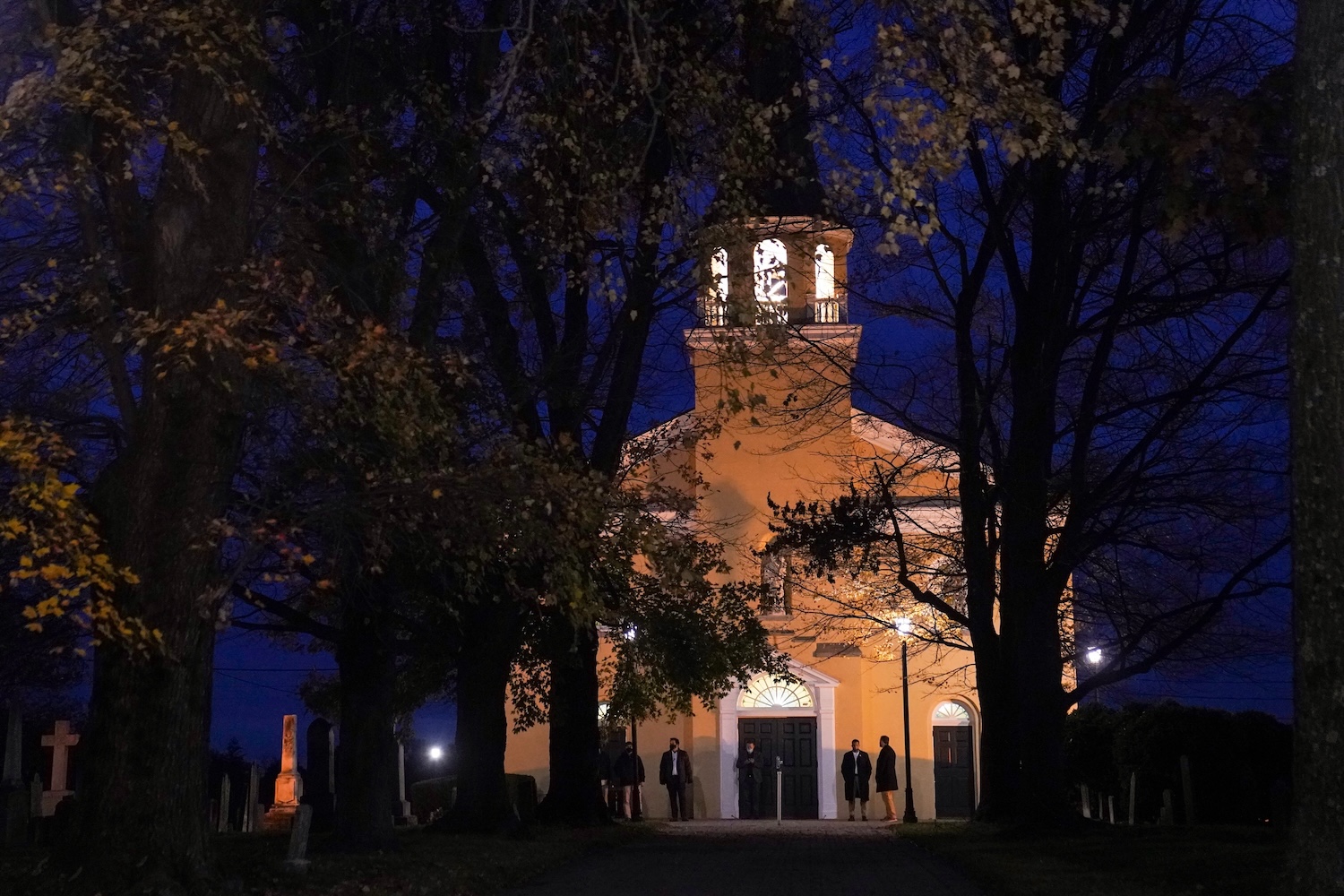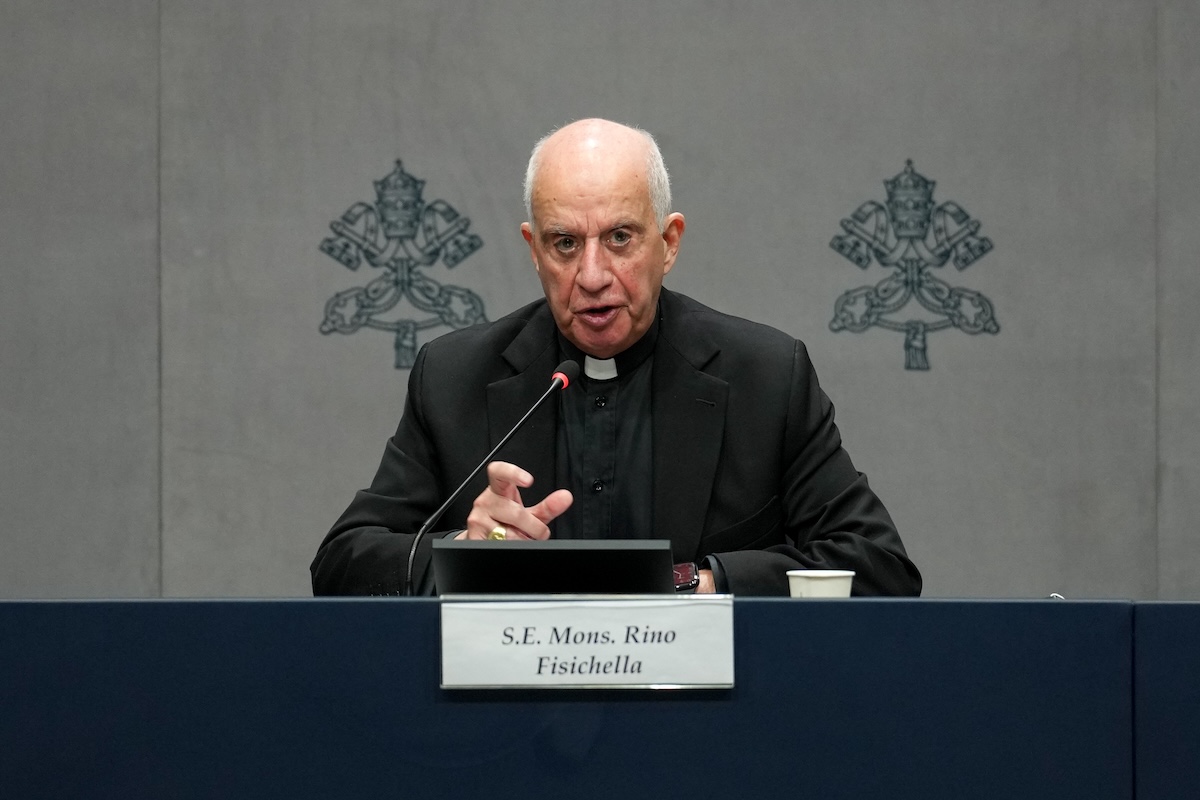The most important person in Britain you’ve never heard of
WARWICK, England — Jon Butterworth is the guy tasked with helping protect the country if there’s ever a major attack on Britain’s energy system.
The boss of National Gas, he oversees thousands of miles of transmission pipelines, the crucial network of pressurized pipes transporting gas to power stations, heavy industry, and via local distributors to heat millions of British homes.
That’s the day job.
But if Britain ever faced a gas supply emergency, Butterworth would have sweeping powers to control domestic gas flows, if necessary cutting off factories, power stations, and — in extreme scenarios — homes as well, to preserve supply for hospitals and other vital infrastructure.
It’s a role that puts him on the frontline of national efforts to prepare for potential attacks on U.K. energy supplies by enemies like Vladimir Putin’s Russia.
Should such an emergency come, the government would need an Order in Council — a legal directive personally approved by the king — to overrule Butterworth, operating in his additional, little-known role as the country’s Network Emergency Coordinator.
Butterworth has barely sat down for an interview with POLITICO when, off-handedly, he starkly illustrates the major, ongoing shift in the country’s attitude toward energy security.
The National Control Centre — from where Butterworth’s team operates those critical pipelines — was sited in Warwick more than 20 years ago, he explains. The “business has grown around it” into what is now a sleek, modern technology park on the edge of town.
“In the future, we probably would not do that,” he said, with characteristic sangfroid. “We’d probably be putting it in a bunker.”
A bunker?
“That’s the government’s thinking,” Butterworth said, “about this sort of thing.”
Energy in the crosshairs
The reason for his (and the government’s) concerns are plain.
“Europe has become a bit more of a dangerous place, hasn’t it?” says Butterworth, a gas engineer by training who worked his way up from his first job, aged 17, at Rochdale gas works near Manchester.
Russia’s invasion of Ukraine, and its recent incursions into NATO countries, has put Europe on high alert. Russia has repeatedly demonstrated in Ukraine that it sees energy infrastructure as “a target,” says Butterworth.
Though the U.K. Labour government wants to wean the country off gas to clean power, it remains the lifeblood of everyday life in one of Europe’s most gas-dependent countries. The pipes transporting the fuel around the country are the vital arteries.
Downstairs from Butterworth’s office, in the control room, a big screen shows a schematic map of Britain. Five thousand miles of pipeline are represented by thin yellow lines. Around the coasts, red triangles represent entry points for gas coming ashore: via pipeline from Norway, from British drilling sites in the North Sea, or from ships laden with supercooled American or Qatari liquefied natural gas landing at Milford Haven in Wales and the Isle of Grain in Essex.
Britain’s energy supply is more vulnerable to adversaries today, Butterworth believes, than in the last century.

“[In] the 1930s, we were a mile underground digging coal. You couldn’t really get any safer. Now we’re bringing boats across the high seas and we’ve got pipelines under the ocean. So it’s different.”
One former U.K. defense secretary has termed undersea infrastructure, including pipelines bringing gas into the country, “the soft belly of British security.”
Emergency coordinator
It’s these vulnerabilities that now occupy Butterworth’s thinking should he be called on to exercise his powers as NEC — a position enshrined in law.
If the country’s gas supply was suddenly reduced, and the usual, market-based methods for covering the shortfall failed, Butterworth would be called on to declare a “network gas supply emergency.”
That would hand him sweeping legal powers to control national supply and demand of gas, with which gas companies would be legally required to comply, powers that can be over-ruled only on the say-so of the king — a responsibility Butterworth acknowledged with a nod, saying, “I’ve always found that quite fascinating myself.”
The NEC position has existed since the 1990s. Butterworth has held it since 2022. Since the invasion of Ukraine, he has been “more cognizant of” potential scenarios involving “loss of supply from the North Sea,” he said — as might be caused by a Nord Stream-style attack on a pipeline.
For years, National Gas has held annual wargame-style exercises to practise for an emergency. The next takes place later this month, involving 50 organizations — including the government — and 400 people.
The scenario is different each year. To trigger Butterworth’s emergency powers a combination of things would likely have to go wrong: a pipeline failure, for example, combined with a reduction in LNG supply and cold weather driving up demand.
The Chris Whitty of energy
In a network emergency — something Britain has never experienced and which remains “highly unlikely,” Butterworth stresses — to preserve gas for those that need it most, like hospitals, he could make public appeals for reduced gas use, require large gas users like power stations and factories to shut down or, in the most extreme cases, cut off gas to potentially large numbers of homes.
Such a step would be taken to maintain the safety of the wider pipeline system. At all costs, the goal would be to avoid an unplanned loss of pressure somewhere in the network — a highly dangerous situation that can lead to gas leaks into homes or explosions.
“It’s never happened, so it’s hard to articulate,” Butterworth says. “But what’s important is that we do not lose pressure to the cities.”
“The right thing for our country transcends everything and that means minimizing any potential loss of life, whatever actions need to be taken, however damaging it is commercially,” he added.
If the worst happened, he would also have a role advising government and likely communicating with the public about what was going on — like Chief Medical Officer Chris Whitty and Chief Scientific Adviser Patrick Vallance during COVID-19.
“A bit like an aircraft simulator, we rehearse and rehearse and rehearse for this day,” Butterworth says.
The patriot
There remains only “a very small risk” of a network emergency, but that risk “must have increased a little” given the geopolitical situation, Butterworth believes.
A conventional attack on gas infrastructure has a probability of one to five percent on the government’s official risk register. A cyberattack on gas infrastructure is considered more likely, at five to 25 percent. National Gas has put “a lot of thought, horsepower, money, into cyber defense,” Butterworth said.
In the scenario laid out in the risk register, is takes “several months” to restore gas to all domestic customers — a very long time, particularly in winter.
“You’ve got half a million businesses, 23 million families that would require heat, plus the power stations. … So it’s very important that it never happens,” Butterworth said
Now 63, Butterworth considers chief executive of National Gas his “second job.” The unpaid NEC is his first.
“I didn’t really realize it probably until I was 50 … that I’m a patriot,” he says.
He has been appointed a Major in the 77th Brigade, the special British army unit that describes itself as specializing in “new forms of warfare.”
“You don’t contact them, they contact you,” Butterworth says. “I have a skillset that they wanted around networks and energy.”
How to be resilient
While as NEC he must think the unthinkable, he is confident the U.K. gas system and its supply lines are “resilient,” thanks to multiple supply routes via pipelines from Norway and other neighbors, from LNG that comes primarily from the U.S., and from the U.K.’s own reserves in the North Sea.
National Gas’s Winter Outlook report, due later this week, is expected to forecast sufficient gas supplies over the colder months, even in the event of unforeseen outages — although with tighter supply margins than in the previous four years.
Butterworth welcomes reports ministers are looking at ways to allow some new oil and gas exploration near existing fields in U.K. areas of the North Sea. “With what’s going on around the world, particularly in Ukraine and the potential lack of gas in Europe, having sovereign gas supplies is helpful,” he says.
The government will soon publish a consultation on “gas system resilience,” looking at the security of U.K. gas supply and options for ensuring the country never has to call on Butterworth’s NEC powers.
He hopes it will show a government thinking about energy supply in the context of dangerous geopolitics.
“It’s going to tease out energy resilience. Military energy resilience. Sources of supply, etc. [The Department for Energy Security and Net Zero is] particularly tuned into this as a threat going forward,” he says.
And if the worst does happen?
Being prepared is “all we can do,” Butterworth says. “I’ve been rehearsing for 46 years.”




















:quality(85):upscale()/2023/09/18/918/n/1922398/a1136b676508baddc752f5.20098216_.jpg)
:quality(85):upscale()/2025/10/09/670/n/1922283/00b944c868e7cf4f7b79b3.95741067_.jpg)
:quality(85):upscale()/2025/10/15/765/n/1922398/29c37a6e68efd84bb02f35.49541188_.jpg)
:quality(85):upscale()/2025/09/09/891/n/1922283/7222624268c08ccba1c9a3.01436482_.png)
















